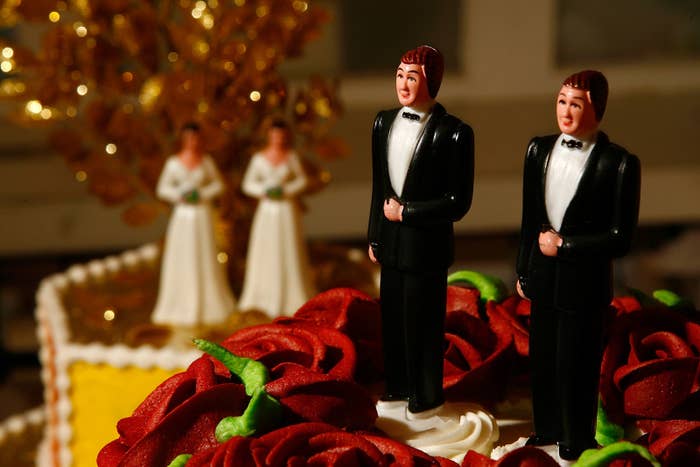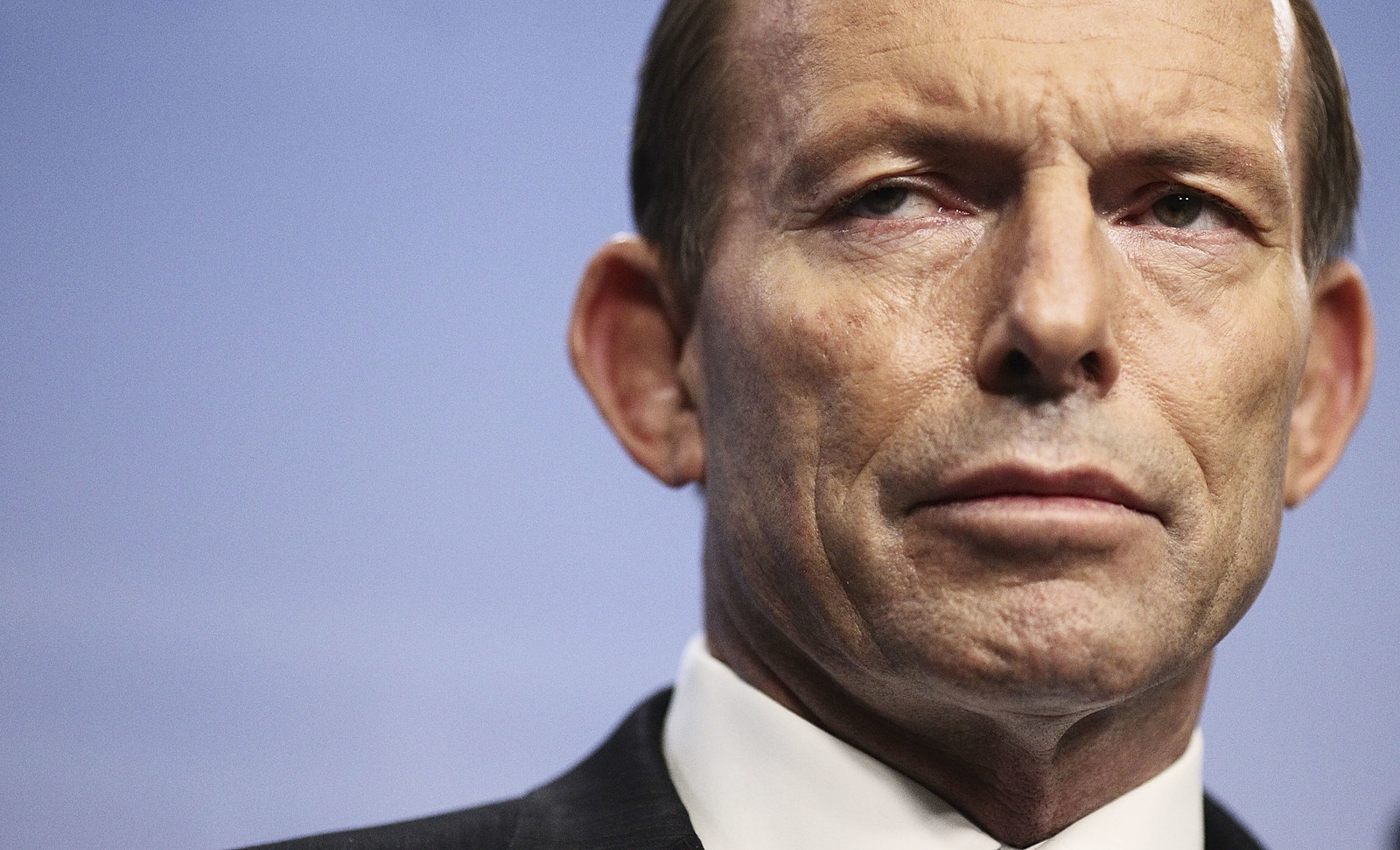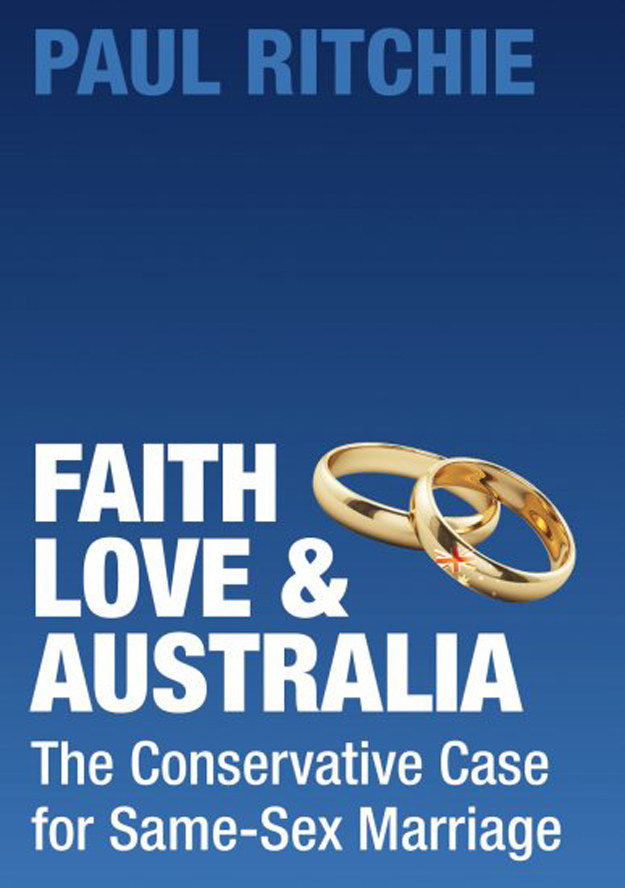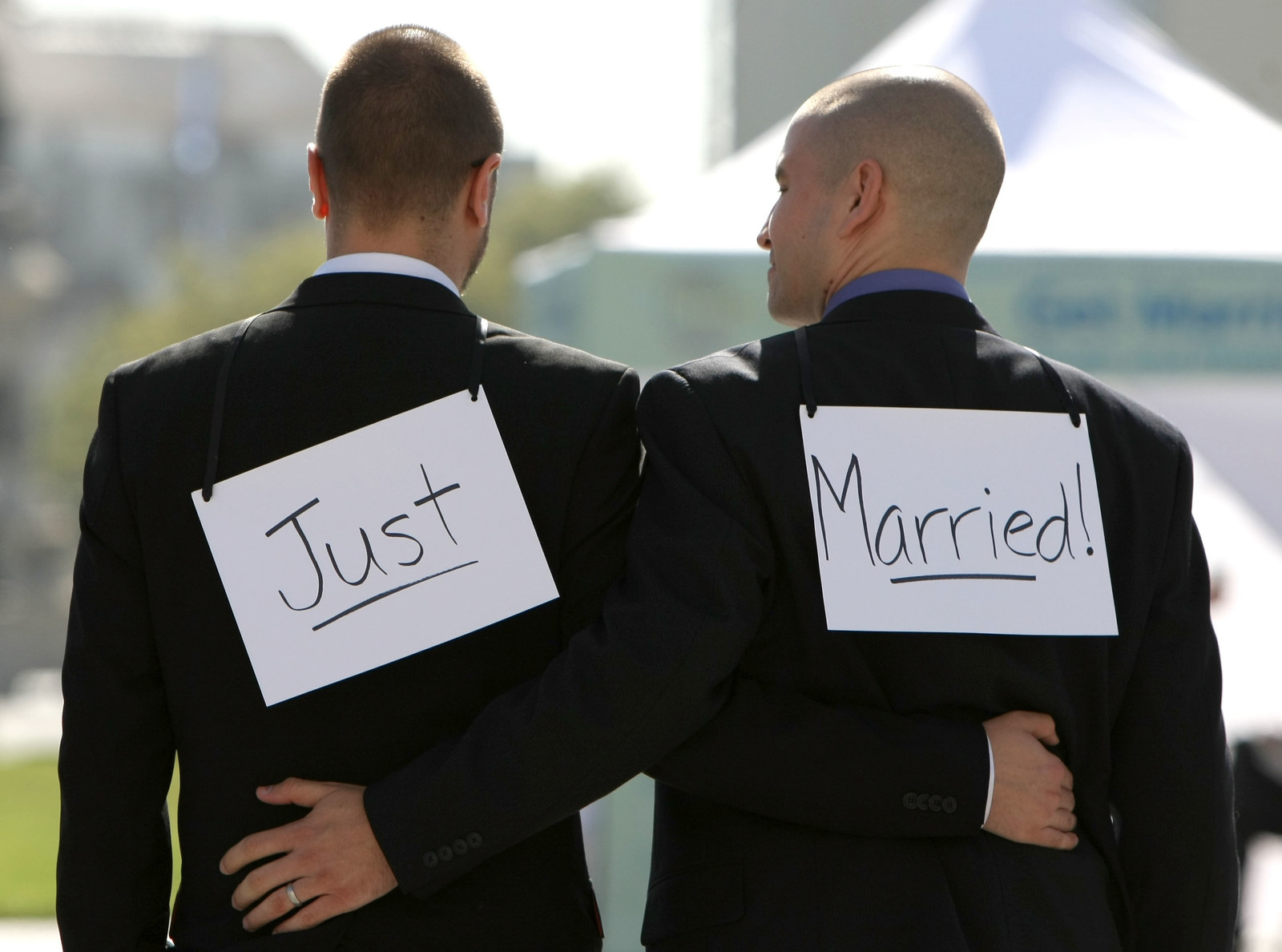Eight years ago, Tony Abbott's former speechwriter, Paul Ritchie, spent three innings of a US baseball game outlining his "conservative case for same-sex marriage" to a mate.

"He said ‘You ought to write that’, and I said ‘I will’," Ritchie told BuzzFeed News. "It stuck in my head for eight years."
In Faith, Love & Australia: The Conservative Case For Same-Sex Marriage, launched last month, Ritchie argues that same-sex marriage is a reflection, not a flouting, of conservative ideals.
At the centre of the book, published by Connor Court, is a core belief: "Same-sex marriage strengthens the social fabric, rather than attempting to tear it."
"Family is the foundation of the social fabric," Ritchie told BuzzFeed News. "There are three ways to join a family. You can be born into it, adopted into it, or marry into it."
"We say to gay and lesbian people with partners of 10, 20, 30 years – they’ve been at the dinner table for that long – you might, by heart, be part of the family, but by law you never will. As a conservative, I don’t buy that."
Ritchie writes that he was initially discomfited at the prospect of a marriage equality plebiscite, saying it seemed to him like it was a "buck pass" until the next election.

It was under Tony Abbott that the policy of a national vote on marriage equality was hatched during a five-hour-long party room meeting in August 2015.
Prior to that meeting, both Tony Abbott and opposition leader Bill Shorten had noted their opposition to a national vote on the matter.
Ritchie wouldn't be drawn on whether he believes Malcolm Turnbull's reluctance to defend the policy with vigour stems from that hasty decision making.
"Tony Abbott staffers always get in trouble when they talk about Malcolm Turnbull!" he said. "I would expect that if there’s a plebiscite, the prime minister will be a vocal proponent of change because he believes in it."
Regardless of the outcome, Ritchie's reservations about the plebiscite remain.
"My instinct is when you put 226 members of parliament together, their job is to think about issues," he said. "It’s to understand the different components, the stakeholders, to come to a view about themselves, the community, the nation."
"I’m a believer in the parliament, because I think you get the best decision making."
Ritchie cites the incremental changes made to marriage over time as evidence that same-sex marriage will strengthen the institution.

He cited bans on interracial marriage and various ways women were oppressed by the institution as elements that needed to change.
"If those changes didn’t occur, no one would get married today," he said. "The reason the institution is strong is because it has gently evolved with the times, and I point to this as one of those gentle evolutions."
As for the most effective argument when it comes to convincing conservatives, Ritchie has two pieces of advice: keep it personal, and keep it polite.

"Every week in Tony Abbott’s office, we had a triage system to figure out which letters should get personal attention," he explained.
"Every week, there’d be letters from kids talking about their family, wanting their family to be like everyone else’s. There was a beauty in what they were writing – lots of spelling mistakes, as I said, and a misplaced belief the prime minister was all-powerful, all that."
"But it’s about giving them the same sort of institutional support that every other Australian kid has."
Ritchie said many of the conversations revolve around "what ifs".
“What if your son, daughter, grandson, granddaughter, you found out they were gay?” he said. "This question prompts a countenance change."
"This book is saying to conservative people ‘I’m not going to shout at you’," he added.
"If you are against same-sex marriage, I have written this book for you."
